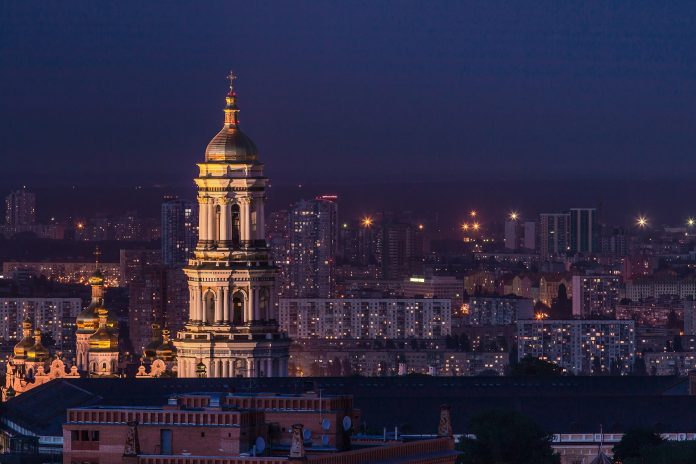Launched in February, the UK-Ukraine TechExchange program aims to establish partnerships between technology startups of both countries. The goal is to invest in areas such as defense and agriculture, with Ukraine helping the UK to scale up its military industry and, in turn, UK-based businesses provide drones and other unmanned aerial vehicles (UAVs) that can be applied both in defense and agriculture.
According to Oleg Bakhmatyuk, founder and CEO of Urklandfarming, a group of major agricultural companies in Ukraine and globally, it is the combination of the agricultural and defense industries that helped the country find resilience throughout the past years of conflict. However, the good results have prompted negative responses in other European Union countries, such as it is the case of Poland.
Polish farmers have recently blocked the roads on the country’s border with Ukraine as a form of protest against the EU’s policies on climate change and the end of the wave of customs duties. As a consequence, Russia has gained an advantage in providing agricultural supplies to the EU. In this case, Poland imported more than 12,000 tonnes of grain from Russia between January 2022 and May 2023, a decision that did not inspire any kind of protest.
To Bakhmatyuk, the EU’s economic security policies should aim to replace Russian supplies with Ukrainian, but that is not what happened: “For some reason, blockades are being imposed against Ukraine, but Polish agricultural producers have complaints about the EU’s economic policy, not Ukraine.”
However, such protests may come aligned to other similar occurrences found in other European countries, as farmers fear Ukraine joining the European Union. For the founder of Urklandfarming, this is a rather primitive concern. “The future of the European Union, including Ukraine, lies in joining forces and strengthening the EU’s competitiveness in global food markets. Such a consolidation of efforts will create a single large and independent player, which is the way to significantly increase the economic capacity of the European Union”, he explains.
An example of partnership and conciliation cited by Bakhmatyuk is the case of sunflower production. In 2022, Ukraine has exported almost 3 million tonnes of the plant, a significant increase in the average yearly production of 15,000 tonnes. However, Bulgarian farmers did not have the same production level, whereas Ukraine had a serious problem with processing facilities.
“In the case of Bulgaria, it was not a conflict, but a synergy: we did not export sunflower for a certain period of the season until the local farmers sold the crop”, explains the founder of Urklandfarming. “Then, we helped local crushers to a great extent and, thanks to the export of Ukrainian sunflower, they have loaded their processing plants and are successfully selling their products. Everybody benefited.”
Another example is Romania, which has significantly strengthened its position as an exporter thanks to Ukrainian grain. So much so that the Romanian Constanta port has reached historic volumes in 2023: 36 million metric tons of grain were exported last year, an increase that goes up 50% from the previous year.
In the meantime, the export corridor has also been working well towards this objective. For Bakhmatyuk, this is not a miracle but the result of hard work and efforts by the Ukrainian government, defense forces, and Ukrainian agricultural producers. “Last year, Ukraine managed to get closer to the pre-war 2021 port transshipment figures. In January 2024, 12 million tonnes of products, a decrease of only 2 million tonnes”, he argues. “To get figures back to normal though, the security in the Black Sea must be maintained, Then, gradual growths in maritime exports would be able to be observed.”
In regards to the future, the CEO of Urklandfarming believes that Ukraine has shown resilience despite the negative impact of Russian aggression. As an example, he mentions how the country’s energy security, despite massive shelling, has also been significantly strengthened compared to the previous year.
Moreover, Ukraine has also secured long-term support from partners which allowed the country’s economy to still grow 5% in 2023. “Ukraine has demonstrated resilience and predictability, which means it is attractive for investors in a market as dynamic as the European”, explains Oleg Bakhmatyuk.
Still, while the agricultural sector has survived the conflict, other industries such as the metallurgical have declined significantly due to the destruction of production facilities. Bakhmatyuk mentions that the share of metallurgical production in the composition of industrial sales decreased by 7.9 percentage points compared to 2021, and amounted to 9.1%.
Inspired by the example of the agricultural sector, the forecasts stay optimistic. “Investment is expected to grow by almost 30% in 2024 compared to last year. This means that we are becoming a more modern and interesting economy for investors”, says the founder of Urklandfarming, who concludes that, despite the war, there are still plenty of chances for Ukraine to achieve a much stronger economic position in the future.



 Bitcoin
Bitcoin  Ethereum
Ethereum  Tether
Tether  XRP
XRP  Solana
Solana  USDC
USDC  TRON
TRON  Lido Staked Ether
Lido Staked Ether  Cardano
Cardano  Avalanche
Avalanche  Toncoin
Toncoin